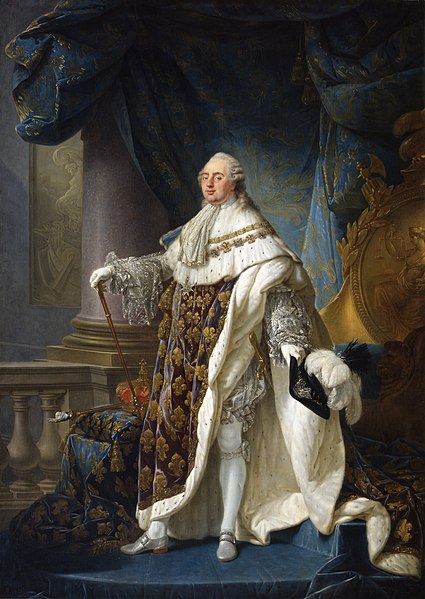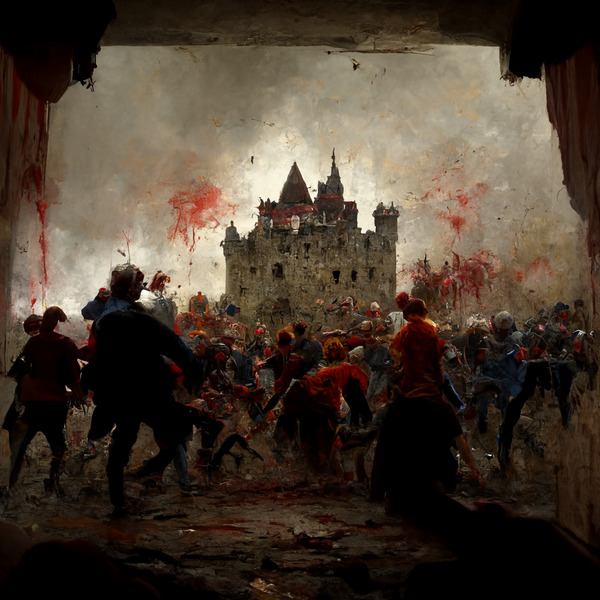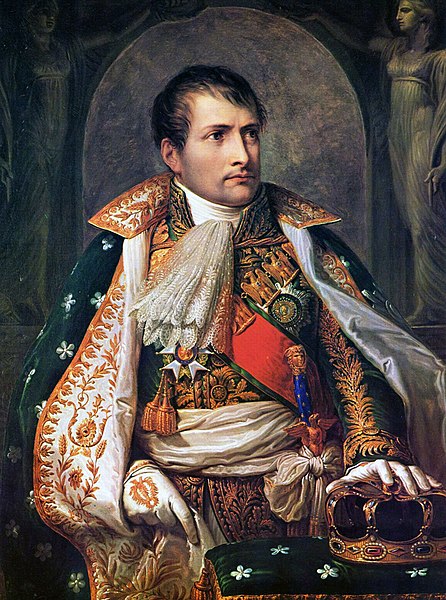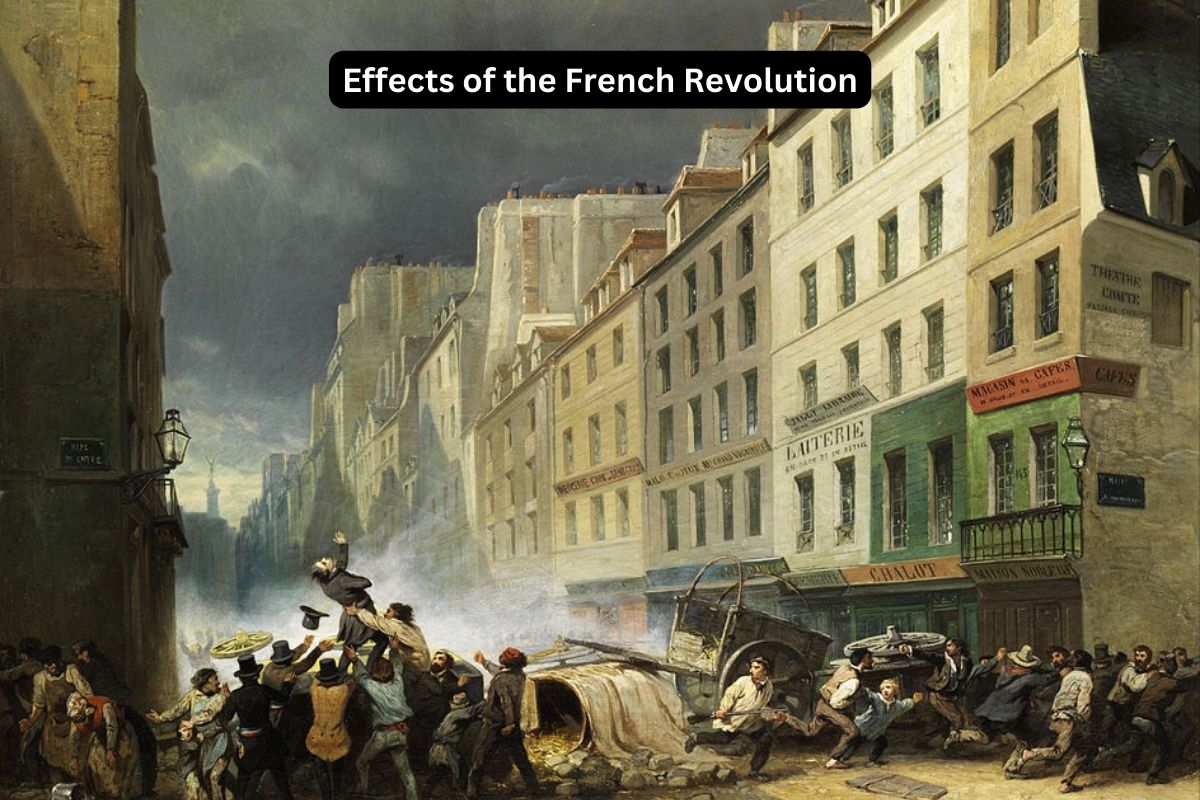The French Revolution, spanning from 1789 to 1799, was a seismic upheaval that reshaped the course of history. Emerging from deep-seated social, economic, and political discontent, it marked the overthrow of absolute monarchy and the rise of democratic ideals.
The revolution’s effects transcended geographical boundaries, fueling a surge of nationalism and inspiring global movements for change. As the monarchy crumbled, the birth of the First French Republic heralded a new era, where power was derived from the people rather than inherited privilege.
However, the revolution was not without its challenges; the radical Reign of Terror demonstrated the delicate balance between pursuing revolutionary ideals and maintaining stability.
The social fabric was rewoven, abolishing feudal privileges and promoting social equality, though disparities lingered.
Through its impact on governance, culture, and the global struggle for liberty, the French Revolution became an enduring emblem of human aspiration for freedom and justice.
| Effects of the French Revolution | Additional Information |
|---|---|
| Overthrow of Monarchy | – Abolition of absolute monarchy |
| – Execution of King Louis XVI | |
| – Establishment of the First French Republic | |
| Rise of Nationalism | – Fostering of national identity and patriotism |
| – Emphasis on revolutionary ideals like liberty, equality and fraternity | |
| – Influence on the development of modern France | |
| Spread of Revolutionary Ideas | – Inspiring movements for political change and independence globally |
| – Influence on other countries and regions | |
| – Impact on shaping the course of global history | |
| Reign of Terror | – Dominated by radical Jacobins and Committee of Public Safety |
| – Mass executions, political purges, and fear | |
| – Subsided but left a lasting impact on memory | |
| Social and Class Changes | – Abolition of feudal privileges and traditional hierarchies |
| – Laws promoting social equality and mobility | |
| – Uneven impact across different segments of society | |
| Secularization and Church Reforms | – Separation of Church from the state |
| – Nationalization of Church property | |
| – Diminished influence of the Catholic Church | |
| Napoleon Bonaparte’s Rise to Power | – Exploited post-Revolution instability to seize power |
| – Established as ruler during the Napoleonic Era | |
| – Brought conquest and significant legal and administrative reforms | |
| Legal Reforms | – Codification of laws, including the Napoleonic Code |
| – Establishment of a uniform legal framework | |
| – Promotion of equality, individual rights, and modern legal systems | |
| Global Impact | – Inspired revolutionary movements worldwide |
| – Motivated colonies and oppressed groups for change | |
| – Contributed to the advancement of human rights | |
| Cultural Transformation | – Reflection of revolutionary ideals in art, literature, and culture |
| – Integration of Enlightenment ideas in creative works | |
| – Long-lasting influence on the cultural landscape | |
| Legacy of Human Rights | – Introduction of the Declaration of the Rights of Man and of the Citizen |
| – Influence on modern discussions about human rights and freedoms | |
| – Enduring impact on principles of individual rights and equality |
French Revolution Effects and Impacts
1. Overthrow of Monarchy
The French Revolution marked a seismic shift from an absolute monarchy to a republic. The revolutionaries aimed to remove the entrenched power of the monarchy and its associated privileges.
Also Read: Facts About the French Revolution
The execution of King Louis XVI and Queen Marie Antoinette in 1793 symbolized the rejection of monarchical rule and heralded a new era in French governance.
The establishment of the First French Republic was a pivotal moment, replacing the monarchy with a system where power was theoretically held by the people and represented by elected officials.

2. Rise of Nationalism
The revolution fueled a strong sense of national identity among the French people. The revolutionary ideals of liberty, equality, and fraternity encouraged unity and patriotism.
Also Read: French Revolution Causes
Revolutionary symbols such as the tricolor flag and the “Marseillaise” anthem became potent symbols of the nation’s spirit and resistance.
The emphasis on shared values and the rejection of monarchic hierarchy contributed to a collective consciousness that laid the foundation for modern French identity.
3. Spread of Revolutionary Ideas
The principles of the French Revolution, particularly those of democracy and human rights, resonated beyond France’s borders. Revolutionary ideals inspired movements for change in other countries.
The Revolution sparked political upheavals in neighboring countries and influenced the emergence of revolutionary movements, such as in Belgium, the Netherlands, and Italy.
Overseas colonies and regions with colonial rule also drew inspiration from the revolutionary rhetoric to seek independence and challenge imperial control.
4. Reign of Terror
The Reign of Terror (1793-1794) was a period of extreme radicalization within the Revolution. The Committee of Public Safety, led by Maximilien Robespierre, pursued a policy of suppressing perceived threats to the Republic.
Also Read: French Revolution Leaders
Mass executions, including that of prominent figures like Robespierre himself, characterized this phase. The terror was fueled by fears of counter-revolution, foreign invasion, and internal dissent.
While the Reign of Terror effectively quashed opposition, it also left a legacy of fear, distrust, and aversion to extreme ideologies.

5. Social and Class Changes
The Revolution aimed to address social inequalities that had long plagued French society. Feudal privileges, which had given the nobility special rights and exemptions, were abolished.
The introduction of new laws promoted social mobility and a more egalitarian society, challenging the rigid class structure that had existed for centuries.
However, these changes were not uniform. While some commoners experienced improved status, others remained impoverished, and the socio-economic disparities persisted in various ways.
6. Secularization and Church Reforms
The Revolution aimed to reduce the influence of the Catholic Church on state affairs and society. The Church had long held significant power and wealth in France.
The Civil Constitution of the Clergy (1790) placed the French Church under state control, leading to tensions with the Pope and divisions among clergy and laity.
Church lands were confiscated and sold, resulting in a significant reduction in the Church’s economic power and influence. Many religious practices were secularized, and the Church’s role in education and social services was curtailed.
7. Napoleon Bonaparte’s Rise to Power
The Revolution’s aftermath was marked by political instability, which allowed Napoleon Bonaparte, a talented military general, to seize power through a coup in 1799 (the 18 Brumaire coup).
Napoleon’s rule as First Consul and later as Emperor (Napoleon I) brought both military conquest and substantial reforms. He codified laws in the Napoleonic Code, centralized administration, and modernized institutions.
His ambitions also led to European wars and conquests, ultimately resulting in the Napoleonic Wars, which reshaped the map of Europe.

8. Legal Reforms
The Revolution aimed to establish a legal system based on principles of equality and individual rights. The Napoleonic Code (Civil Code) was a comprehensive legal framework introduced by Napoleon in 1804.
The code standardized laws across France, emphasizing equality before the law, protection of property rights, and promotion of personal freedoms.
Although it modernized legal concepts, the Napoleonic Code was criticized for maintaining some aspects of inequality, particularly in matters of gender and family law.
9. Global Impact
The revolutionary ideals and principles of the French Revolution inspired movements for independence and social change worldwide.
Colonized nations saw the Revolution as a beacon of hope and began seeking autonomy and self-determination, often challenging imperial powers.
The concept of human rights gained prominence on a global scale, as oppressed groups sought to apply the principles of liberty, equality, and fraternity to their own struggles.
10. Cultural Transformation
The revolutionary period fostered a dynamic cultural atmosphere that reflected the changing social and political landscape.
Art, literature, and music became powerful tools for expressing revolutionary ideals. Artists and writers depicted heroic images of the Revolution, while political satire and pamphlets circulated widely.
The Enlightenment’s emphasis on reason and individual rights continued to influence creative works, fostering a new intellectual climate that extended beyond the Revolution’s immediate aftermath.
11. Legacy of Human Rights
One of the enduring legacies of the French Revolution is its significant contribution to the advancement of human rights on a global scale.
The Declaration of the Rights of Man and of the Citizen, adopted in August 1789, proclaimed fundamental rights and principles that were considered universal and inalienable.
The declaration emphasized the equality of citizens before the law, the right to liberty, property, security, and resistance to oppression. It also asserted the right to freedom of thought, expression, and religion.
These concepts became cornerstones of modern human rights discourse and laid the groundwork for subsequent declarations and international agreements, including the Universal Declaration of Human Rights adopted by the United Nations in 1948.
The Declaration’s ideals have continued to inspire movements advocating for civil liberties, social justice, and political freedom in various parts of the world.
The legacy of human rights from the French Revolution underscores the lasting impact of its progressive ideals and serves as a reminder of the ongoing struggle to secure and protect fundamental rights for all individuals.
